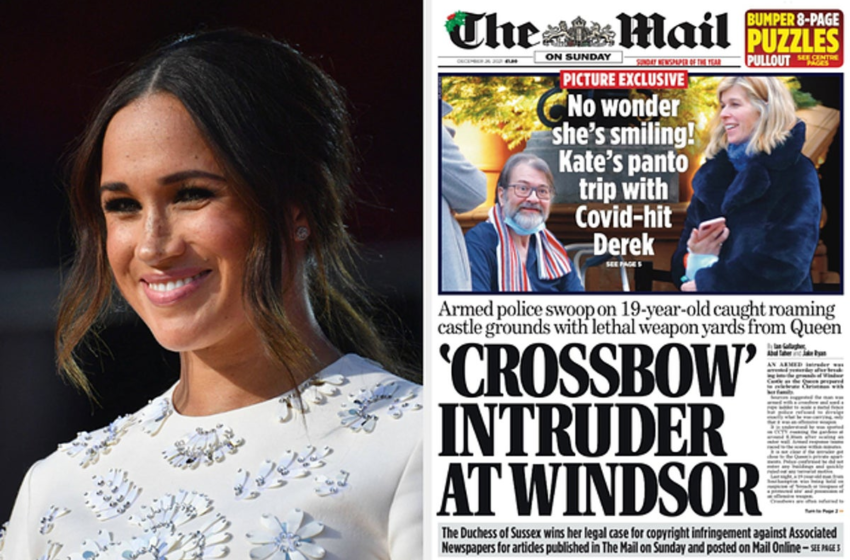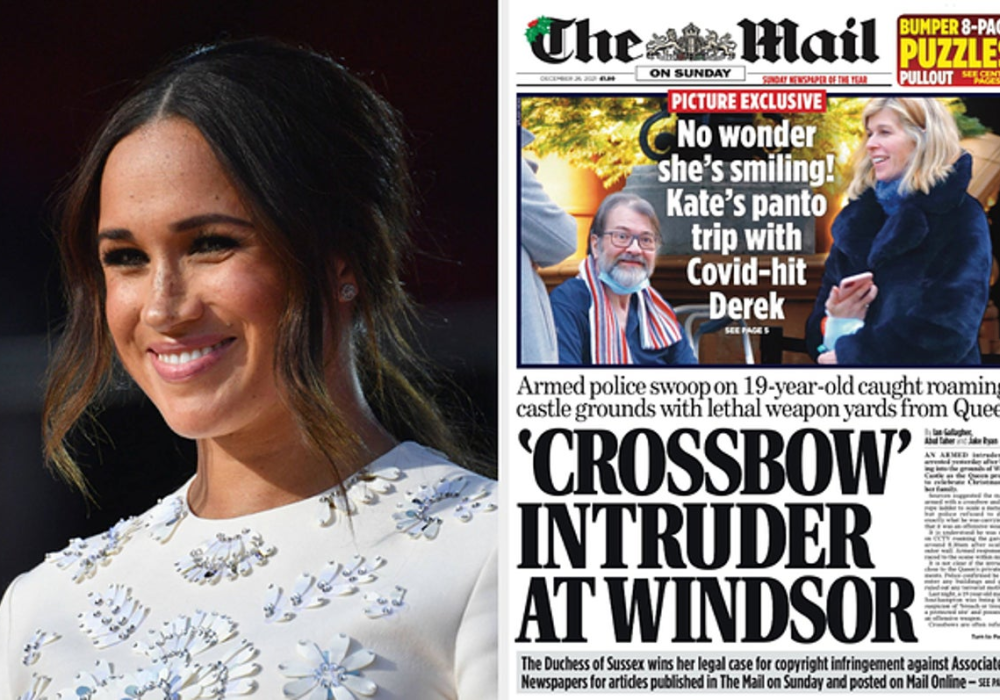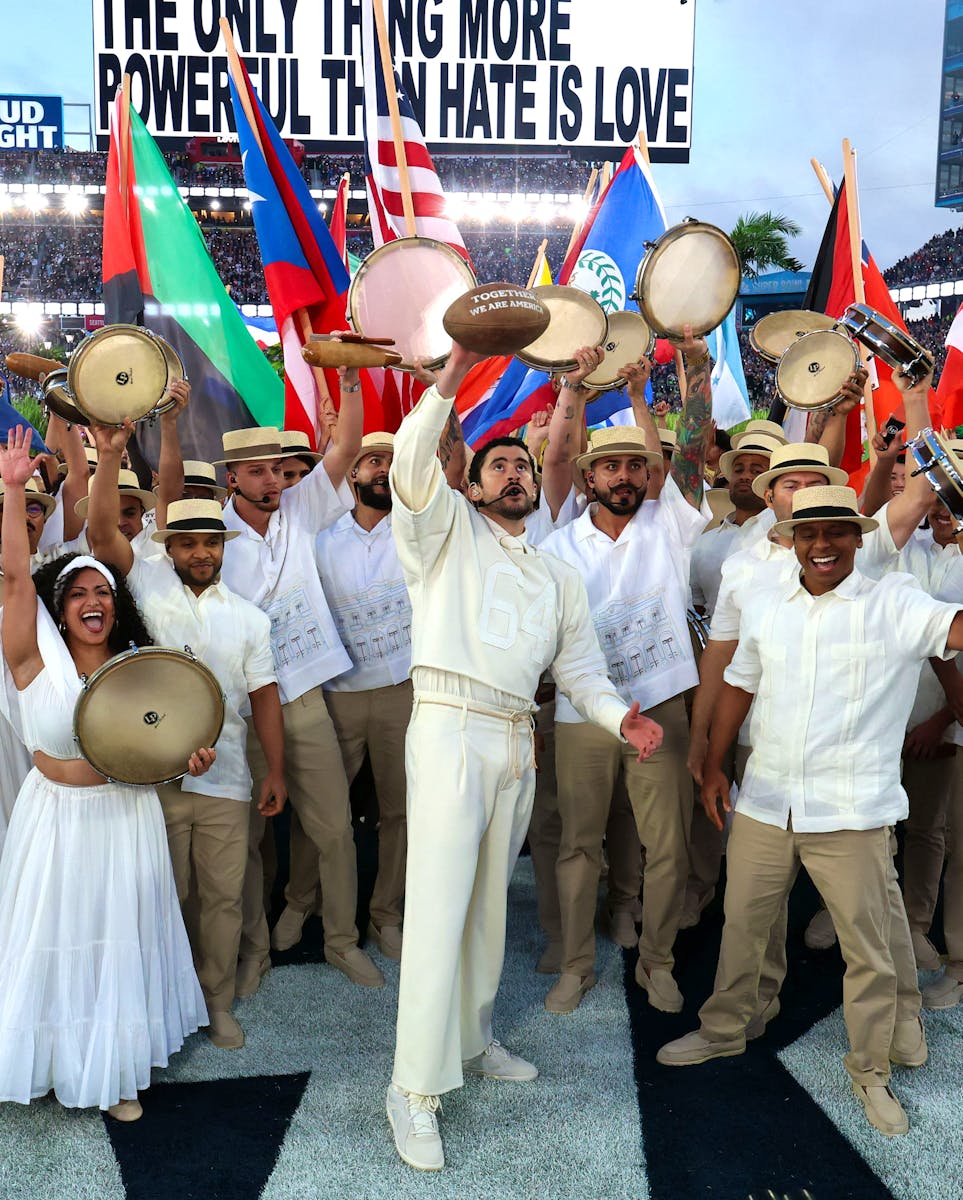A UK newspaper was forced to print an admission that it had violated the rights of Meghan, Duchess of Sussex, on Sunday after losing a privacy and copyright infringement lawsuit.
The court-mandated apology and an unspecified amount of money in financial reparations mark the end of a multiyear legal battle between Meghan and Associated Newspapers Limited, the parent company of the Mail on Sunday and Mail Online. The duchess sued ANL in October 2019 for violating her privacy and copyright rights after the company published excerpts from a handwritten letter she sent her estranged father, Thomas Markle, in the Mail on Sunday and in a number of stories published on Mail Online.
“Following a hearing on 19-20 January, 2021, and a further hearing on 5 May, 2021, the Court has given judgment for the Duchess of Sussex on her claim for copyright infringement,” the statement said. “The Court found that Associated Newspapers infringed her copyright by publishing extracts of her handwritten letters to her father in the Mail on Sunday and on Mail Online. Financial remedies have been agreed.”
On Feb. 11, High Court Lord Justice Mark Warby ruled in Meghan’s favor in a summary judgment, a type of verdict granted when a judge determines that no trial is needed because the evidence is so overwhelming. In his decision, Warby wrote that “there is no prospect that a different judgment would be reached after a trial.”
ANL’s lawyers appealed the ruling, claiming that Warby was wrong to award Meghan victory via summary judgment and arguing for the right to present their case at trial — something the duchess has fought against from the beginning of the proceedings.
“To permit the defense to go to trial would only have facilitated further invasions of [Meghan’s] privacy,” her lawyers wrote to the UK Court of Appeal in November. Meghan’s legal team accused ANL of pushing for a trial because it would give the tabloid company “the opportunity to profit handsomely from the media circus that would inevitably result.”
During the appeal proceedings in November, lawyers for ANL argued that Warby made his judgment without knowing all of the information — and presented new evidence in the form of written testimony from the Sussexes’ former communications secretary Jason Knauf that showed inconsistencies in Meghan’s statements to the court about the letter and her expectations of privacy.
According to Knauf, Meghan composed the letter knowing that her father might give it to the press. And although Meghan swore under oath that she never coordinated with members of the media to share private information, Knauf provided the court with emails between himself and the duchess discussing what she wanted him to say in a secret briefing with two reporters who were writing what proved to be a very sympathetic biography of the Sussexes. In response to Knauf’s revelations, in a witness statement filed Nov. 11, Meghan apologized to the court “for the fact that [she] had not remembered these exchanges” and swore she “had no intention to mislead the defendant or the court.”
However, the fact that Meghan — intentionally or unintentionally — was not entirely truthful ultimately had no effect on the Court of Appeal, which ruled in her favor in a judgment issued Dec. 2.
Although ANL said in a post-verdict statement that it was considering appealing the case to the UK Supreme Court, its publication of the apology Sunday signaled that the company has finally admitted defeat.
As part of his initial judgment in Meghan’s favor in February, Warby ordered ANL to publish a statement in print and online that acknowledged the company violated the duchess’s copyright rights. According to UK law, “Where the court finds that an intellectual property right has been infringed, the court may, at the request of the applicant, order appropriate measures for the dissemination and publication of the judgment to be taken at the expense of the infringer.”
As can be seen in an order filed by Warby on March 22, the wording and format of ANL’s statement was a source of contention — down to the font size in which the text would be printed and how long the statement would remain on Mail Online’s website.
The agreed-upon text was published Sunday on the third page of the newspaper, with a statement on the front page directing readers to it.
The same text, with links to the court’s judgments, is currently on display on Mail Online’s homepage and will be for the next week. (Many commentators pointed out that ANL chose to carry out the court order the day after Christmas, a day when few people typically read newspapers.)
In a statement issued in response to the Court of Appeal’s ruling in her favor on Dec. 2, Meghan said that her win was not just for her but “for anyone who has ever felt scared to stand up for what’s right.”
“While this win is precedent setting, what matters most is that we are now collectively brave enough to reshape a tabloid industry that conditions people to be cruel, and profits from the lies and pain that they create.
“From day one, I have treated this lawsuit as an important measure of right versus wrong. The defendant has treated it as a game with no rules. The longer they dragged it out, the more they could twist facts and manipulate the public (even during the appeal itself), making a straightforward case extraordinarily convoluted in order to generate more headlines and sell more newspapers — a model that rewards chaos above truth,” she said.
“Because as far removed as it may seem from your personal life, it’s not. Tomorrow it could be you. These harmful practices don’t happen once in a blue moon — they are a daily fail that divide us, and we all deserve better.”












